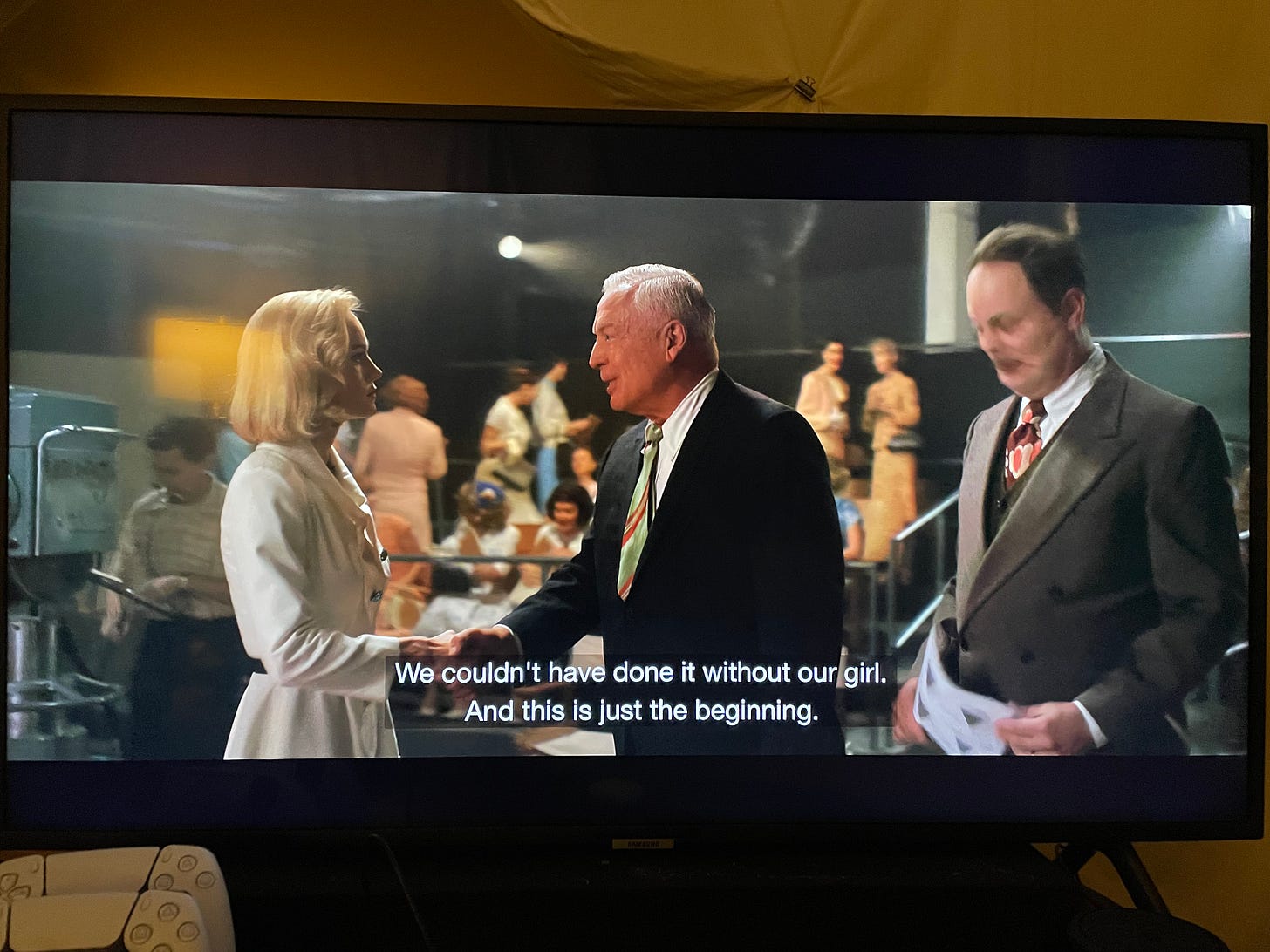No One Uses the Word "Woman"
The language we use (and don't use) says much about what (and who) we value.
English-speaking, American people are generally weird about saying the word “women” in casual conversation. We’ll say “girls,” and “ladies,” even “guys,” but we won’t say “women.”
It’s another night of football, another game commentated by two men with one female reporter on the sidelines. Fall 2022. Steve Levy or Troy Aikman or whoever is transitioning the conversation to the woman on the side of the field, “And now, we take it down to our All-American . . . Girl!”
He paused for a long time before he said “girl.”
It’s like he was looking at a woman, thinking, “This is a woman,” but he was so uncomfortable with the word “woman” that he had no option but to say “girl.”
It sounded so weird. So weird.
But also, we all do this all the time! That announcer’s phrasing was extra cringey, so it stood out, but it made me realize that we all do just about anything to avoid saying “woman.”
Sometimes “girl” is used as the simplest way to differentiate gender. Sometimes it works, even when referring to an adult. Fine! But if linguistically we’d use the word “man” in the same instance instead of “boy,” “woman” should be the word we choose instead of “girl.”
So I started trying to work “woman” into my vocabulary when it fits.
And I learned: it sounds weird in normal conversation, not just in awkward NFL moments. It does. But only because it’s unusual.
Unusual, and, of course, correct.
So I worked on working it into conversations more. The trick, I decided, was to prepare ahead of time. Proactively choose a word in your sentence besides “woman” for your emphasis to hit. If you don’t, you’ll awkwardly emphasize the word “woman,” because you’re thinking extra hard about that word. And it’ll sound weird. Which is the opposite of the point.
The point is to normalize saying “woman.” It’ll be weird for a while, but if you make yourself practice, you’ll get used to it. And what we say say and don’t say says something about what we think.
Normalize women, people!
Haha! A joke.
Until you read Invisible Women, and you learn that men understand themselves as the human default, and they design our worlds according to their needs, and things in our world don’t work for women because they were not made for women. Bring back the women’s-sized iPhones!! (personal passion point). Test cars with female crash dummies in the drivers’ seat!! (society-wide safety issue).
The word “girl” is inaccurate when it’s used to refer to a woman.
The word “girl” is also used to belittle women. Think power dynamics, think condescension, think dismissal without having to engage with a woman’s humanity.
There was an example I noticed in Lessons in Chemistry, where this jerk who leads the company refers to their most competent, successful employee as “our girl.” Belittling use of “girl” and language of ownership! Ew!
There’s a racial component to the misuse of the word “girl” as well. The history of White people using infantilizing general nouns for Black people in this country is long and wrong. Black adults of all ages have been and still are called “girl” and “boy” regardless of their age. And we know this—if Black people suffer racism in one area, and women suffer sexism in a similar area, Black women are suffering in both areas, and suffering additional trauma from dealing with the problems created by both areas. Intersectionality, people!!
Language matters.
So.
Your homework is as follows: speak the word woman.
See how it sounds.
See what it makes you think.
(And, especially if you’re a man, or handle any sort of data, or design stuff, or live in the world, or have any power as a human, read this book.)

P. S. I once submitted a college paper where I used the word “woman” instead of “female” incorrectly the whole time. “Female” is the adjective version of the word “woman.” It’s trendy right now to use “woman” as the adjective, but I don’t love it.
It’s all usage, it’s all preferences, but for posterity’s sake, here’s my take: “The woman bought Invisible Woman.” Noun. “The best female author is Madeline Perkins.” I mean, or whoever, take your pick. Anyway, it’s a noun in the first sentence. Adjective in the second.






Thank you for your thoughts. It's not only in English. In German it's the same and I've experienced the same awkwardness. Even here we use "ladies" the english word or the German equivalent "Damen" instead of option for "Frau" which means "woman" in German.
Love your last paragraph. Correct use of language makes it not so awkward. More awkward than using woman as adjective is using female as noun. It's demeaning and also downputting for women, euqating us more to animals observed, not autonomous humans. Always makes me think of the person saying it as a Ferengi from Star Trek TNG.